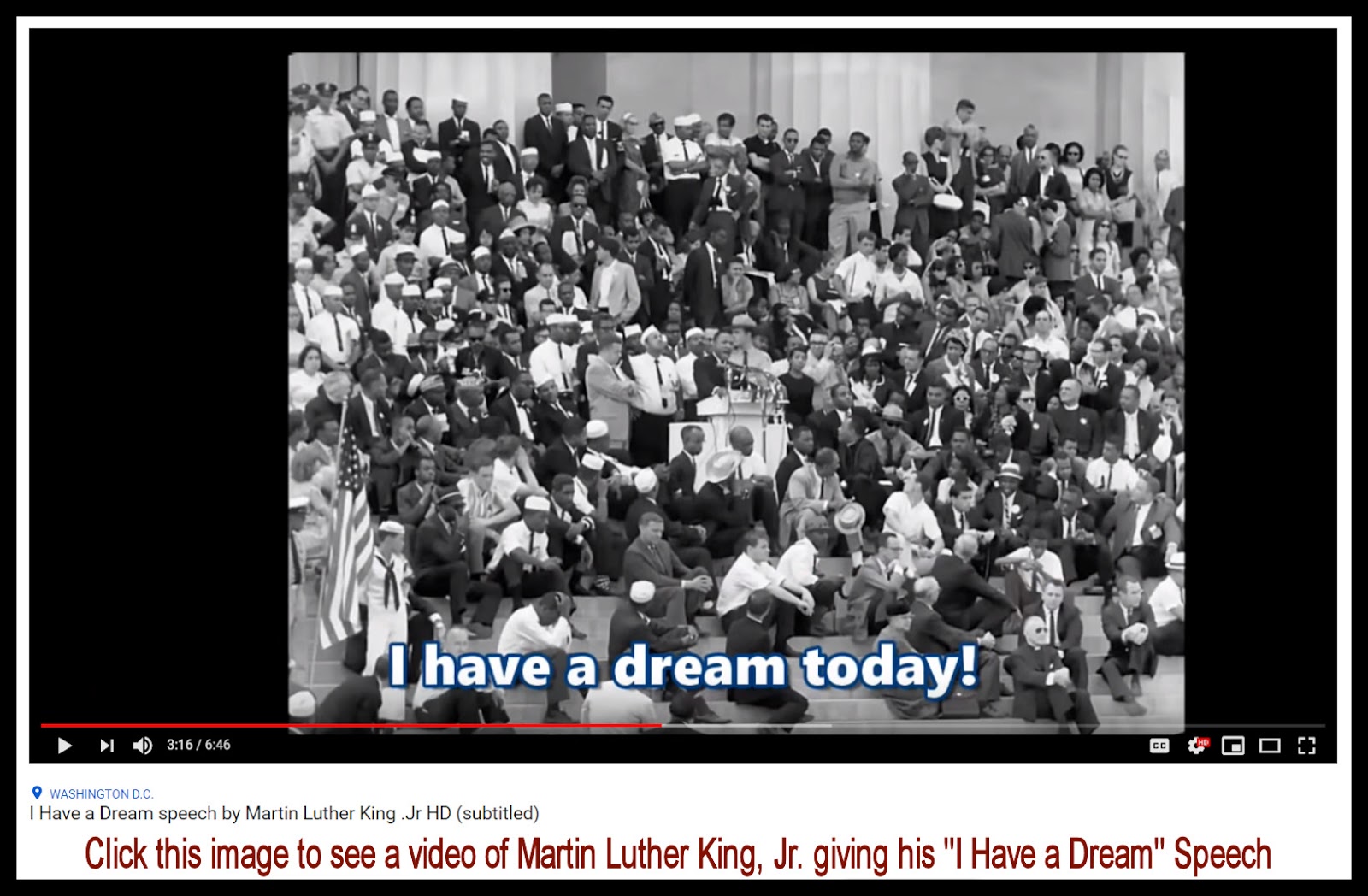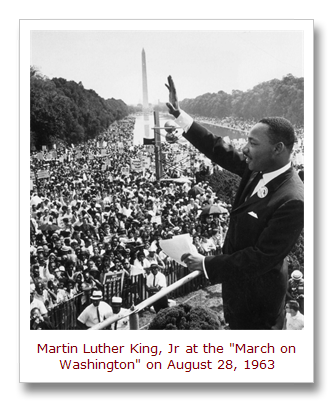The observance of Martin Luther King Jr. Day, on the third Monday of January each year, always makes me think of his most quoted words: “I have a dream…”
After doing some research on the story behind those famous words, I find them even more memorable.
August 28th is generally cited as the anniversary of King’s use of “I have a dream…” because he spoke them in the moving, high-profile address he gave at the historic “March on Washington” on August 28, 1963.
What he said that day is rightly considered to be one of the greatest speeches in history.
It is generally referred to as the “I Have a Dream” Speech, due to King’s repeated use of the phrase during the last third of his remarks.
But if King had stuck to the written version of the speech he’d prepared it would be known by a different name.
The typed copy that his aides gave to the press that morning and that King carried to the podium was titled “Normalcy – Never Again.”
The words “I have a dream” were not in it.
In fact, King had consciously decided not to include that phrase because he’d used it before in several other speeches.
He and his aides thought it might seem stale.
He had used the phrase recently in another high-profile speech at a major civil rights rally in Detroit on June 23, 1963.
In that speech he repeated “I have a dream” numerous times in a series of sentences that are very similar to those he later used in the most famous part of his August 28 speech in Washington.
 As noted by many newspaper and magazine articles and the book, The Speech: The Story Behind Dr. Martin Luther King Jr.’s Dream, by Gary Younge, King was inspired to add “I have a dream” to his Washington speech by the great gospel singer Mahalia Jackson.
As noted by many newspaper and magazine articles and the book, The Speech: The Story Behind Dr. Martin Luther King Jr.’s Dream, by Gary Younge, King was inspired to add “I have a dream” to his Washington speech by the great gospel singer Mahalia Jackson.
Jackson had sung two rousing gospel songs shortly before King started speaking and was standing behind him.
During the first eleven minutes of his speech, King basically delivered his prepared remarks.
To people who had heard him speak at other events, and to King himself, it seemed like a good speech, but not quite a great one.
Then, as recounted in Younge’s book, something remarkable happened:
King was winding up what would have been a well-received but, by his standards, fairly unremarkable oration. “Go back to Mississippi, go back to Alabama, go back to South Carolina, go back to Georgia, go back to Louisiana,” he said. Then, behind him, Mahalia Jackson cried out: “Tell ‘em about the dream, Martin.”…Jackson had seen him deliver the dream refrain in Detroit in June and clearly it had moved her.
“Go back to the slums and ghettoes of our northern cities, knowing that somehow this situation can and will be changed,” King said [continuing his prepared remarks]. Jackson shouted again: “Tell ‘em about the dream.”
King knew what she meant.
He stopped giving his written speech, set the written text aside on the podium, and began talking extemporaneously. Or, more accurately, almost extemporaneously.
When you compare the text of the last part of King’s August 28 speech with the text of his June 23 speech, you can see that some of the most famous parts of what came to be called the “I Have a Dream” Speech were based on lines from the earlier address.
Of course, this does nothing to diminish the amazing eloquence and impact of what King said on the 28th.
But it is interesting to compare some of the parallel language in the two speeches side by side.
If King had not recycled parts of the Detroit speech at the March on Washington, his speech on August 28 might now be called his “Normalcy – Never Again” Speech. And, his Detroit speech might be called his “I Have a Dream” Speech.
Here are some of the parallel lines from both speeches…
|
From Martin Luther King, Jr.’s |
From Martin Luther King, Jr.’s |
|
I say to you today…I still have a dream. It is a dream deeply rooted in the American dream. |
And so this afternoon, I have a dream. It is a dream deeply rooted in the American dream. |
| I have a dream that one day this nation will rise up and live out the true meaning of its creed: “We hold these truths to be self-evident; that all men are created equal.” | I have a dream this evening that one day we will recognize the words of Jefferson that “all men are created equal”…I have a dream this afternoon. |
| I have a dream that one day on the red hills of Georgia the sons of former slaves and the sons of former slave owners will be able to sit down together at the table of brotherhood. I have a dream that one day even the state of Mississippi…will be transformed into an oasis of freedom and justice. | I have a dream that one day, right down in Georgia and Mississippi and Alabama, the sons of former slaves and the sons of former slave owners will be able to live together as brothers. |
| I have a dream that my four little children will one day live in a nation where they will not be judged by the color of their skin but by the content of their character. | I have a dream this afternoon that my four little children…will be judged on the basis of the content of their character, not the color of their skin. |
| I have a dream that one day…little black boys and black girls will be able to join hands with little white boys and white girls as sisters and brothers. | I have a dream this afternoon that one day, one day little white children and little Negro children will be able to join hands as brothers and sisters. |
| I have a dream that one day every valley shall be exalted, every hill and mountain shall be made low, the rough places will be made plain, and the crooked places will be made straight, and the glory of the Lord shall be revealed, and all flesh shall see it together. | I have a dream that one day every valley shall be exalted…and every hill shall be made low; the crooked places shall be made straight, and the rough places plain; and the glory of the Lord shall be revealed, and all flesh shall see it together. |
| And when we allow freedom ring, when we let it ring from every village and every hamlet, from every state and every city, we will be able to speed up that day when all of God’s children, black men and white men, Jews and gentiles, Protestants and Catholics, will be able to join hands and sing in the words of the old Negro spiritual, “Free at last! Free at last! Thank God Almighty, we are free at last!” | With this faith, I will go out with you and transform dark yesterdays into bright tomorrows. With this faith, we will be able to achieve this new day when all of God’s children, black men and white men, Jews and Gentiles, Protestants and Catholics, will be able to join hands and sing with the Negroes in the spiritual of old: “Free at last! Free at last! Thank God almighty, we are free at last!” |
* * * * * * * * * *
Comments? Corrections? Post them on the Famous Quotations Facebook group.
Related reading…


